Piero Bassetti's Italici. New & Old Generations in a Glocal World
The web has changed the categories of time and space, and by doing so it has changed the way people feel to belong to a certain country. No longer geographical provenance, citizenship or language alone defines people’s identity.
This is particularly true for Italics. More than 250 million people refer to something that has been originated by the historical presence of Italy in the world. Most of them do not live in Italy, don’t speak Italian, don’t watch Italian soccer and don’t follow the convoluted developments of Italian political life. Yet, they feel somehow attached to Italy.
It is a transnational community characterized by shared values and interests. Historically, its roots lie in Italian emigration, but it has since undergone a number of changes and now extends beyond those roots.
Piero Bassetti, a renowned entrepreneur, politician and public intellectual, defines this feeling of belonging in the widest cultural sense as Italicity.
“The world we live in faces us not only with a big financial crisis, but also with big cultural crisis,” said Piero Bassetti, speaking at Casa Italiana Zerilli-Marimò later last week. “We have to readjust the categories of our feelings, categories like the attachment to the patria. The relationship between Italianità and Italycity is not in any chance controversial. They relate in a new way on which we have to reflect. And in the case of Italians this happens already. Every Italian has in his pocket a passport with two nationalities, the Italian one and the European one.”
According to Bassetti we are still living in an international world, but we are entering a new phase. We are entering a glocal world, a world where the relationship between what is local and what is global will not be mediated only and always by the international approach, but by different ties. For instance, by social online networks like Facebook.
“What is really important about the notion of Italicity”, suggested Anthony J. Tamburri, Dean of John D. Calandra Italian American Institute, Queens College/CUNY, “is that it refers to people as a sort of aggregate, not dividing them into different categories.”
New York is traditionally considered to be an excellent laboratory to analyze the hybridism and contamination between different categories of Italianità and Italicity.
According to the Consul General in of Italy in New York Francesco Maria Talò, currently in the U.S. there are three main categories of people who feel, in different degrees, linked to Italy.
First, the group of traditional Italian Americans, integrated American citizens who speak no Italian and are not Italian citizens but feel great attachment to Italy. They are tens of millions.
Second, Italian nationals, those who have an Italian passport and speak Italian. They are hundreds of thousands. They are Italian, but it’s very likely that their children will be part of the first group.
Third, the category made up of researchers, scholars, businessman. The expression of what Consul General Francesco Maria Talo’ calls the new Little Italy, Madison Avenue.
“The old Little Italy in downtown Manhattan does not exist anymore,” said Talo’. “This is a sign of success for Italians, it means that they had a successful integration, they don’t need anymore to live together in a small enclave. The problem now is to help these three groups to work effectively together.”
At the Casa there were representatives of all three of them. First of all, the numerous participants to the round table: professors and journalists that have dedicated their whole career to the study of Italian culture and language. Teresa Fiore (California State University Long Beach), Fred Gardaphe (Queens College, CUNY), Fabio Finotti (University of Pennsylvania), Niccolò d’Aquino (journalist for Il Corriere della Sera), Ottorino Cappelli, professor at the University of Naples “L’Orientale” and Project Coordinator of i-Italy, and Letizia Airos Soria, executive editor of i-Italy and journalist for America Oggi: all of them contributed to the enrichment of the debate, sharing their point of view on an issue that is not yet object of researches and analysis, but that induces to deep and consciuous reflections for its extraordinary actuality.
The public was very active too. It was composed by people of different social and cultural backgrounds. But with something important in common: the love for Italy. Among those present, three stood out:: Baroness Mariuccia Zerilli-Marimò, Cav. Joseph Coccia, founder of the Coccia Institute of Montclair State University (NJ), and Cav. Vincenzo Marra, founder of ILICA. All three of them, each in a different way, have given an extraordinary contribution to the spread of Italian culture in the United States.
The conference, that lasted almost 3 hours, was the fruit of a fortunate encounter between Bassetti and i-Italy. We share the same mission: to spread and consolidate a new Italic identity in the United States and in the world. A transnational, cosmopolit and g-local identity that finds its Manifesto in the book presented in this occasion:
Because we know that relationships without boundaries change the meaning of place, bringing it closer to the meaning of node, opening up a new relationship between the global and the local, in which the global penetrates all loci through its networks, and each locus folds directly into the global. (...) Because we know that this new glocal world will be our world and our destiny.






























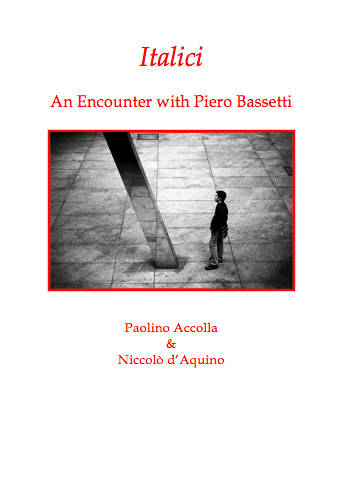
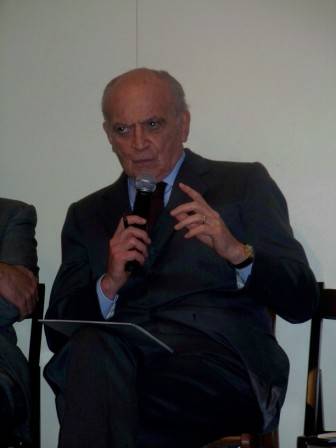
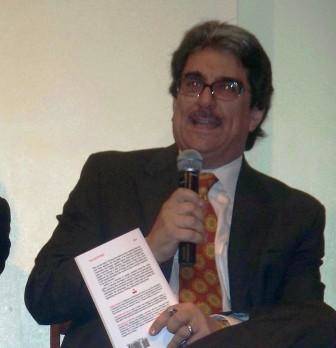
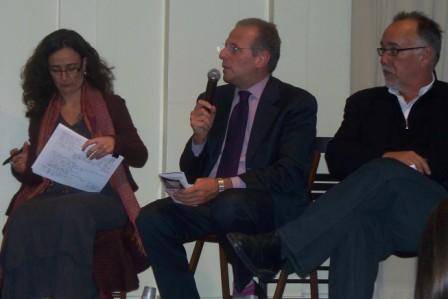
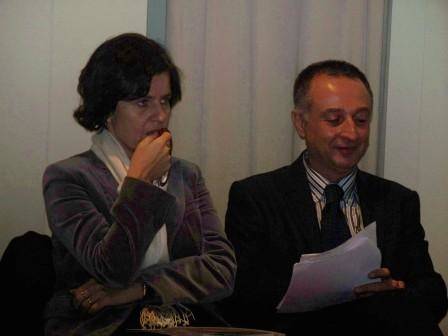



i-Italy
Facebook
Google+
This work may not be reproduced, in whole or in part, without prior written permission.
Questo lavoro non può essere riprodotto, in tutto o in parte, senza permesso scritto.